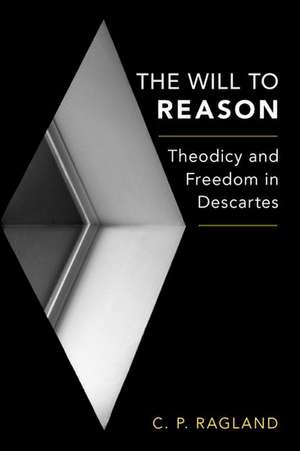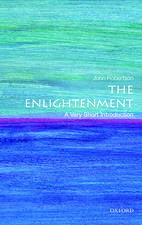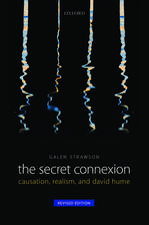The Will to Reason: Theodicy and Freedom in Descartes
Autor C.P. Raglanden Limba Engleză Hardback – 14 apr 2016
Preț: 551.25 lei
Preț vechi: 790.51 lei
-30% Nou
Puncte Express: 827
Preț estimativ în valută:
105.50€ • 109.73$ • 87.09£
105.50€ • 109.73$ • 87.09£
Carte tipărită la comandă
Livrare economică 01-07 aprilie
Preluare comenzi: 021 569.72.76
Specificații
ISBN-13: 9780190264451
ISBN-10: 0190264454
Pagini: 272
Dimensiuni: 157 x 236 x 28 mm
Greutate: 0.5 kg
Editura: Oxford University Press
Colecția OUP USA
Locul publicării:New York, United States
ISBN-10: 0190264454
Pagini: 272
Dimensiuni: 157 x 236 x 28 mm
Greutate: 0.5 kg
Editura: Oxford University Press
Colecția OUP USA
Locul publicării:New York, United States
Recenzii
[Rangland's book] is elegant and nuanced. It is an achievement that ought to influence subsequent Cartesian scholarship.
There is much of interest in The Will to Reason. A central issue is whether or not to assemble Descartes' view of human freedom before or after a consideration of his philosophical views on divine providence. Ragland is correct that if Descartes allows for libertarian freedom, he also makes room in his system for trouble that it could do without.
There is much of interest in The Will to Reason. A central issue is whether or not to assemble Descartes' view of human freedom before or after a consideration of his philosophical views on divine providence. Ragland is correct that if Descartes allows for libertarian freedom, he also makes room in his system for trouble that it could do without.
Notă biografică
C. P. Ragland is Associate Professor of Philosophy at Saint Louis University. There he especially enjoys introducing students to philosophy as well as teaching and doing research in the history of modern philosophy and philosophy of religion. With Sarah Heidt, he is co-editor of What is Philosophy (Yale UP, 2001).












